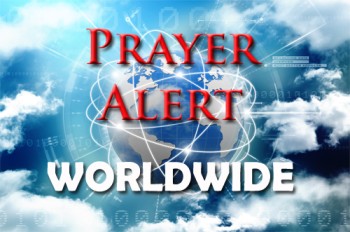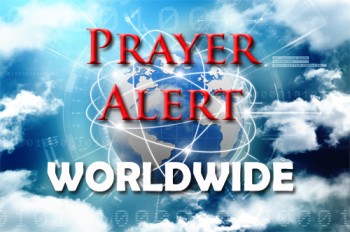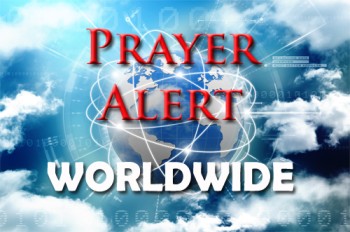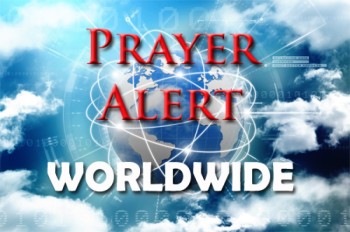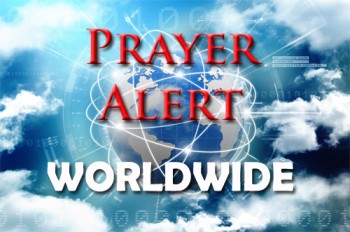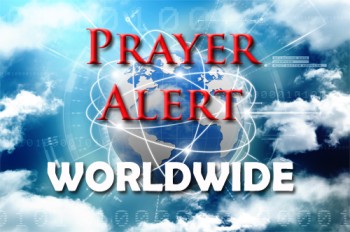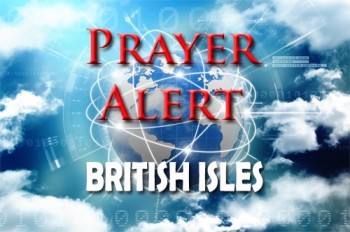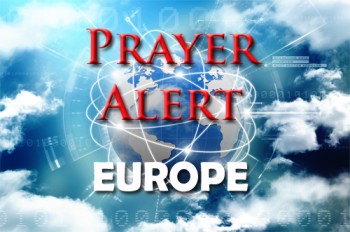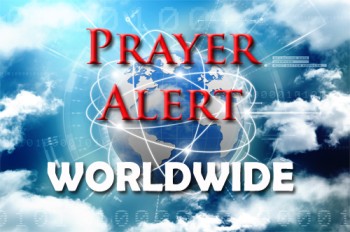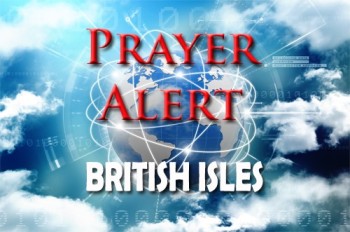Displaying items by tag: Drought
Syria: worst drought in decades pushes millions to the brink
Syria is facing its worst drought in 36 years, devastating wheat production and deepening a nationwide hunger crisis. Farmer Maher Haddad has harvested barely a third of his normal yield, reflecting a 40% drop in wheat output across the country. The FAO estimates a shortfall of 2.73 million tonnes this year - enough to feed 16 million people - while rainfall has plunged 70%, crippling three-quarters of rain-fed farmland. Nearly 90% of Syrians already live in poverty; over 14 million are food insecure, and 9.1 million suffer acute hunger. Bread prices have skyrocketed, forcing families to borrow for daily food. Aid groups like the World Food Programme are providing emergency subsidies and direct payments to farmers, but long-term solutions such as new irrigation systems are hampered by years of war, soaring fuel costs, and economic collapse. Without sustained international support and adequate rainfall, Syria’s food crisis could escalate dramatically into 2026, threatening rural livelihoods and driving further displacement.
Brazil: ‘If these fires continue, we indigenous people will die’
The Amazon is experiencing a huge environmental crisis; fires have ravaged over 62,000 square kilometres of forest, exacerbated by Brazil’s most severe drought. The fires, usually deliberately started by loggers, miners, and farmers seeking land, are decimating the region. Raimundinha, who leads an indigenous firefighting brigade, has warned: ‘If these fires continue, we indigenous people will die’. Respiratory issues are already affecting her family, and the fires are increasingly encroaching on lands which in theory are protected by the government. The drought has not only fuelled these fires but also drained rivers, making daily life for some nearly impossible. With dwindling resources and rising temperatures, the situation in the Amazon highlights the fragile balance between human activity and environmental conservation, as well as the catastrophic effects of climate change.
Mexico: angry farmers target thirsty avocado orchards
In Mexico's drought-stricken Michoacan state, subsistence farmers are taking direct action against commercial farms, particularly avocado orchards, which are depleting water sources. Angry residents have organised teams to remove illegal water pumps and breach unlicensed irrigation ponds, sparking potential conflicts with avocado growers, some of whom have ties to drug cartels. The drought, exacerbated by increased water use for lucrative export crops, has led to disappearing rivers and lakes. The residents are demanding fair access to water resources; they have proposed giving 20% of the water to the orchard owners. The government has been urged to address the root causes of the conflict and prevent further environmental degradation.
Somalia: Christian Aid prayer for East Africa
43,000 people died during Somalia’s longest drought on record. 18,000 deaths are expected in the first half of 2023. Christian Aid is urging the UK's government to act immediately and for us to pray the following prayer. ‘Loving God, When Famine stalks the land, nothing grows. Plants cannot, people cannot, ideas and dreams cannot, and everything dies. It is a violent anomaly of your will for the world, and it is multiplied by covid conflict and climate change. God of flourishing fields, there is enough to feed everyone. Call us to that sacred sharing neighbour to global neighbour Your gifts of food, water, a chance to live the life so delicately crafted by your divine spirit. May we turn towards each other with generosity and justice-driven compassion that searches for solutions. Famine stalks the land, so may our outrage grow, may our determination steel itself, and may our solidarity spur us into action. Help us feed each other. Amen’
Somalia: drought and deaths
11-year-old Dahir's brother died of hunger. His two sisters are fighting sickness and malnutrition caused by drought. Authorities want the international community to recognise the crisis as a famine. ‘I'm worried about my sisters. I wash them. I wash their faces’, says Dahir, glancing at six-year-old Mariam, coughing hoarsely and complaining of headache, and four-year-old Malyun, lethargic with sunken eyes. Measles and pneumonia are rampant, killing many younger children with immune systems weakened by malnutrition. At hospitals’ intensive care wards, doctors and nurses insert fluid drips into emaciated infants' arms and oxygen tubes into tiny nostrils. Children's limbs are dark and blistered as if severely burnt - a painful reaction to prolonged starvation. The hospital's head doctor said, ‘The world is paying attention to Somalia's drought now. We see visitors from international donors. But that doesn't mean we are getting enough support. I hope it will come soon. It is a desperate situation.’
Somalia: brink of starvation
For three decades Somalia has lurched between disorder and anarchy. The government controls only bits of the country. The rest is in the hands of al-Shabab jihadists adept at blowing themselves up in crowded places. For many Somalis life is poor, brutish, and short. They live in the world’s fifth poorest and eighth most violent country. Their life expectancy is the sixth lowest. Droughts and floods add to the misery. In 2011 failed rains contributed to the worst famine of the 21st century: more than 250,000 people died, half of them children. A decade later history may repeat itself. The worst drought in four decades is wilting crops and killing livestock. On 5 September government officials said an even greater catastrophe could sweep the country within days or weeks unless more help arrives. Over 18 million people can’t find enough to eat; children are dying. Pray for hospitals to have enough nutritional supplements for children. See also
Seeds of prayer: fields of hope
At the time of writing, 11 of 14 English Environment Agency areas have declared a drought. Spain’s olive oil production is devastated, and French wine making is threatened (Haggai 1:10-11). The provision of grain, oil, food and energy are challenged. Farmers are in the front line: lost harvests, grazing or planting new crops, and livestock being fed as if it is winter already. This will increasingly impact all relying on agriculture and related industries. Thus, the challenge grows for faithful obedience and wholehearted trust in the Lord, for who He is and not just as provider. Ask the Lord to strengthen believers in this season so we may display faithfulness, generosity, hope and stability to those around us, prompting them to seek the reason for our hope (1 Peter 3:15; Psalm 27:13). May we encourage one another and look to the Lord to supply all our needs, whether He sends drought or rain.
Europe’s drought and cost of living
Rivers drying up and farmland parched: Europe’s water scarcity is affecting lives and businesses. Scientists warn the current European drought could become its worst in over 500 years. Water scarcity has hit 60% of the continent from Italy to the UK. An unusually dry winter and scorching summer heat reduced rivers to rivulets. The historic water reserve lows have forced governments to restrict supplies, seriously affecting many sectors from agriculture to shipping. In July heatwaves shaved 0.5% off Europe’s annual GDP. Wildfires destroyed crops across Italy, Greece, France, and Spain, and energy prices are up because of the war in Ukraine. The Global Commission on Adaptation said an estimated investment of $800m in climate programmes could save poor nations up to $16bn every year.
Ethiopia: prayer needs
Ethiopians have a catastrophic hunger crisis after four failed harvest seasons due to drought. There are dire predictions for the autumn harvest. 91% of people in southern Ethiopia live in rural areas, depending on livestock and agriculture to survive – the backbone of Ethiopia’s economy. All grazing lands and water sources have dried out. Livestock and crops have perished. There are severe food shortages. People travel for hours searching for water. This responsibility falls to women and girls, putting them at risk on dangerous routes. Girls are also missing school. Pray for agencies to provide adequate nourishing food and clean water where it is needed. Pray for people to feel God’s love and comfort surrounding them. Pray that there will be no long-term side effects or medical conditions due to hunger. Ask God to bring the rainfall that is needed; may this lead to abundant harvests and water sources springing up again closer to communities.
Drought and hosepipe bans
A prolonged dry spell and record-breaking temperatures have left rivers at exceptionally low levels, depleted reservoirs, and dried-out soils. Environment secretary George Eustice has urged more firms to take action to mitigate the effects of the prolonged dry weather. But each water company has different thresholds and demands, so we might not see a UK-wide ban. Sir Robert Goodwill, chairman of the environment, food and rural affairs select committee said, ‘It costs water companies money to impose a hosepipe ban and I suspect they have held off longer than they would have done twenty years ago when most people were unmetered and just paid their water rate.’ His comments come as the UK prepares to declare a drought. Water UK say that climate change and an increasing population mean there could be water shortages by 2050. On 10 August Thames Water sent water tankers to residents in the first place in Britain to run dry when Stokenchurch reservoir was found to contain E.coli.
